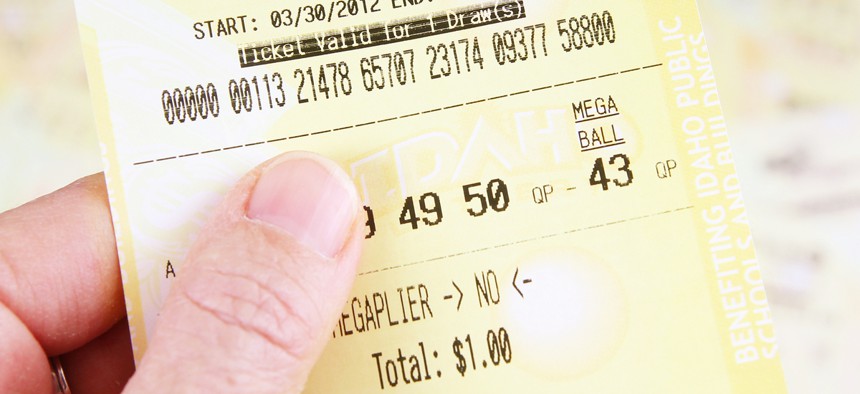Repeat Lottery Winners Raise Eyebrows in Wisconsin

Shutterstock

Connecting state and local government leaders
The Badger State isn’t alone when it comes to people who seemingly have really good luck.
When state lotteries are making headlines, it usually involves someone winning the lottery or issues with how a state lottery has been managed.
Both storylines have been converging in the Badger State since the Wisconsin Center for Investigative Journalism—using data on winners compiled by Gaming the Lottery, an international organization that investigates the global lottery industry—took a closer look at winners.
That includes Khalil Audi of Cudahy, Wisconsin who since 2009 “has cashed in lottery tickets 33 times to the tune of about $80,000.”
According to the Wisconsin Center for Investigative Journalism:
The Wisconsin Center for Investigative Journalism found that at least three of the top 13 players who have won 20 times or more in recent years have close ties to the retailers selling them the winning tickets—including Audi, who works at Charlie’s Liquor & Tobacco Mart, home to 30 of his 33 wins.
Wisconsin has no laws barring lottery retailers or their employees from buying or cashing in lottery tickets at their own stores—a gap in regulation that could open the state’s $600-million-a-year lottery system to fraud. Canada learned that lesson in 2006 when provincial lotteries in Ontario and British Columbia were rocked by scandals uncovered in media reports involving store owners and clerks.
Wisconsin isn’t the only state to encounter the issue of repeat lottery winners. Last year, Pennsylvania Auditor General Eugene DePasquale opened an investigation into the Keystone State’s lottery after a media investigation into winnings, which found that a Mechanicsburg veterinarian “claimed 209 lottery tickets worth $600 or more between 2004 and 2016, winning $348,000.”
Investigations into unusually frequent winning in other states have sometimes found their wins rooted in crime: from retailers secretly stealing winning tickets from prize claimants; to cheating; to schemes that facilitate debt evasion or money laundering.
In 2014, the Florida Lottery announced security reforms and launched investigations following media reports into similarly unusual win patterns. The agency shut down lottery sales at 18 retailers in the immediate aftermath.
DePasquale's inquiry found that "lottery staff conducted an appropriate investigation and implemented additional security measures," though his office "reserves the right to begin an audit once the changes recently implemented have had time to be effective," he said in a January statement.
Jean Adler the deputy administer of the Wisconsin Lottery, told the Wisconsin Center for Investigative Journalism that everyone on the list of 20 people on the most-frequent winners list have been investigated and will be monitored “to watch for additional wins that might suggest further investigation.” Adler, however, refused to discuss how the agency guards against retailers and others from cheating the system, saying that it could give wrongdoers ideas how to game the lottery.
Michael Grass is Executive Editor of Government Executive’s Route Fifty and is based in Seattle.

NEXT STORY: Counties Enmeshed With Federal Lands Score Wins in Spending Bill





